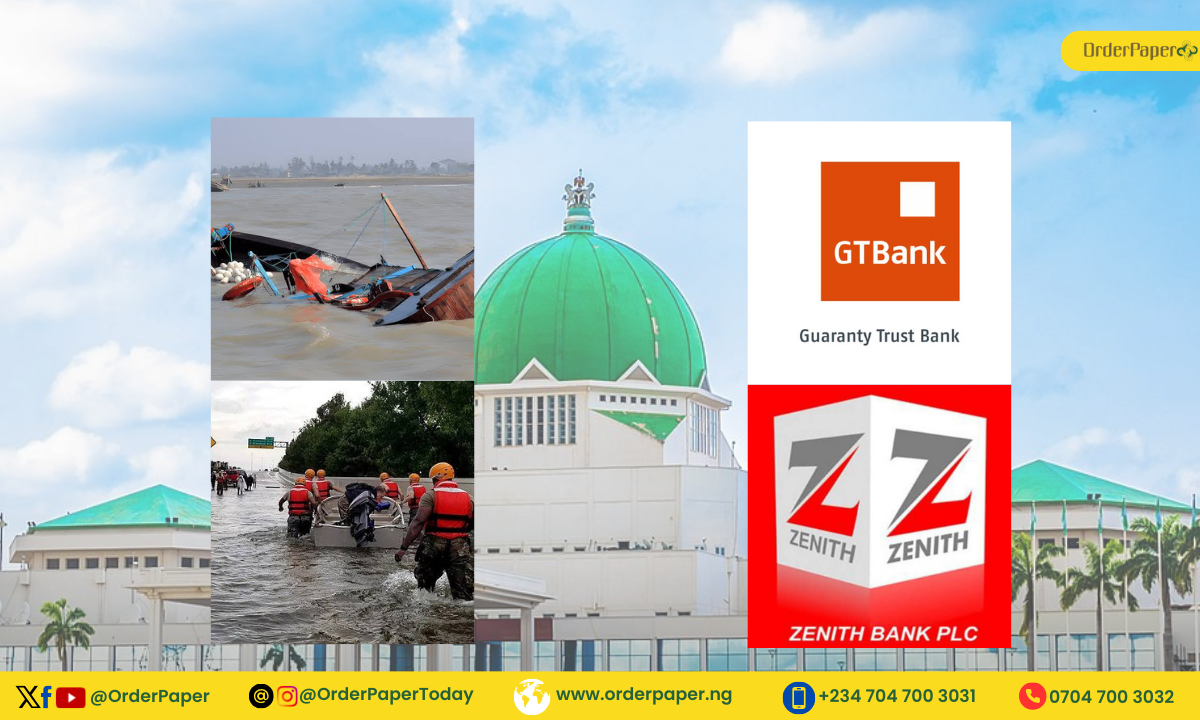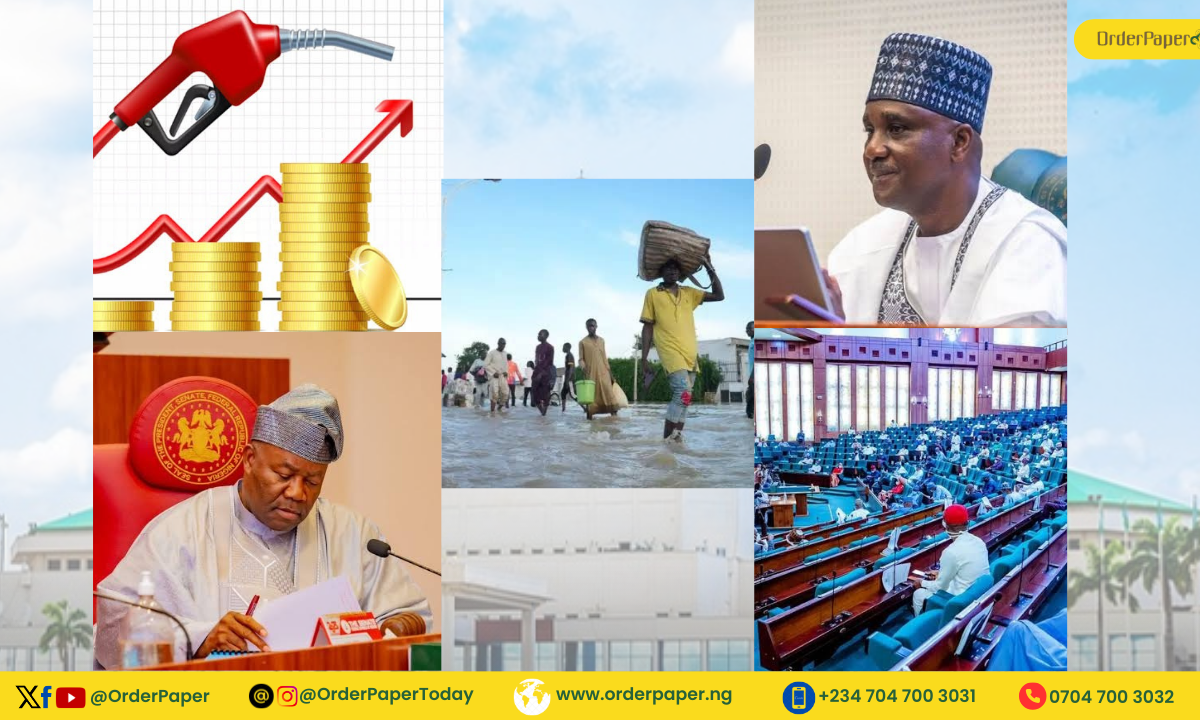On LIFE this week, we present the discussions, spanning a wide range of issues that are pivotal to Nigeria’s development and unity reflecting the complex and dynamic nature of Nigerian society, expected at the National Assembly.

This week, the National Assembly is poised to engage in extensive deliberations on several pressing matters of national significance. The discussions are set to reflect the nation’s rich tapestry of political, cultural, and socio-economic dynamics.
Lawmakers are expected to tackle issues ranging from regional leadership disputes to national heritage debates, alongside socioeconomic and educational advancements.
Among the prominent topics on the agenda are the Emir tussle drama in Kano State, President Tinubu’s upcoming launch of the National Assembly library, the celebration of Children’s Day on May 27th, the Senate’s decision on the National Anthem debate, and the controversial dismissal of over 200 workers by the Central Bank of Nigeria (CBN).
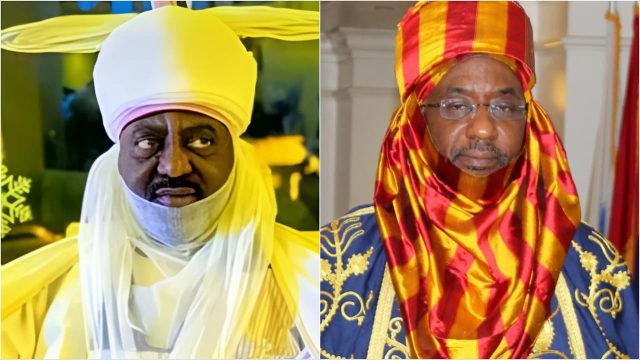
The Emir Tussle Drama in Kano State
One of the most pressing issues on the agenda is the ongoing Emir tussle in Kano State. The drama surrounding the Emirate has captivated national attention, with deep historical, cultural, and political implications. The dispute stems from the re-appointment of Sanusi Lamido and the subsequent dethronement of 5 Emirs in the new Emirate, a process often marred by accusations of political interference and factional rivalries which has led to court orders and protests in the city.
Lawmakers are expected to discuss the implications of this drama on regional stability and traditional leadership structures. The debates are likely to focus on finding a resolution that respects cultural heritage while ensuring political and social harmony and explore how to balance respect for age-old customs with contemporary governance needs. Additionally, the National Assembly might consider measures to ensure that future appointments are conducted transparently and free from undue political influence, thereby preserving the sanctity of traditional institutions.
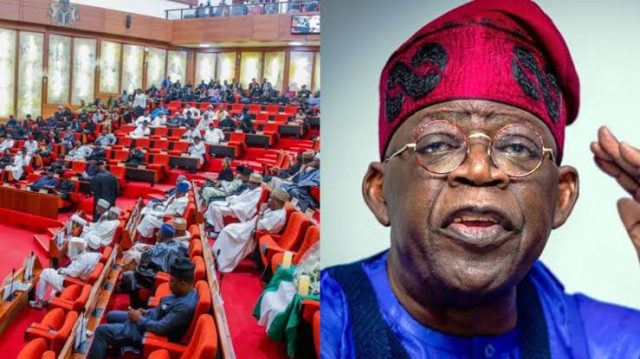
President Tinubu to Launch the National Assembly Library
In a significant milestone marking his first year in office, President Bola Tinubu is set to inaugurate the new National Assembly library. The library is expected to house an extensive collection of legislative documents, historical records, and contemporary political analyses, providing a crucial resource for informed policymaking.
This initiative is part of a broader effort to enhance legislative research and resource access for lawmakers providing them with access to a vast repository of legal texts, historical documents, and contemporary research materials.
The launch of the library is symbolic of President Tinubu’s commitment to strengthening democratic institutions. It reflects an understanding that a well-informed legislature is vital for effective governance and the enactment of laws that are in the best interest of the citizenry. The ceremony is anticipated to be a grand affair, with dignitaries from various sectors in attendance, celebrating a year of governance and the promise of a more informed legislative process.

May 27: Celebrating Children’s Day
Children’s Day on May 27th is another highlight for the week. This day is dedicated to recognizing the rights and well-being of children across the world celebrating the young minds of Nigeria and acknowledging the importance of nurturing the nation’s future leaders. Lawmakers are expected to discuss policies aimed at improving children’s welfare, including education, healthcare, and child protection laws.
The Senate and House of Representatives might introduce new bills or amendments to existing laws to better safeguard children’s rights. Topics such as increasing budget allocations for education, implementing comprehensive child healthcare programs, and strengthening laws against child labour and abuse are likely to be at the forefront. These discussions underscore the government’s commitment to creating an environment where every Nigerian child can thrive.
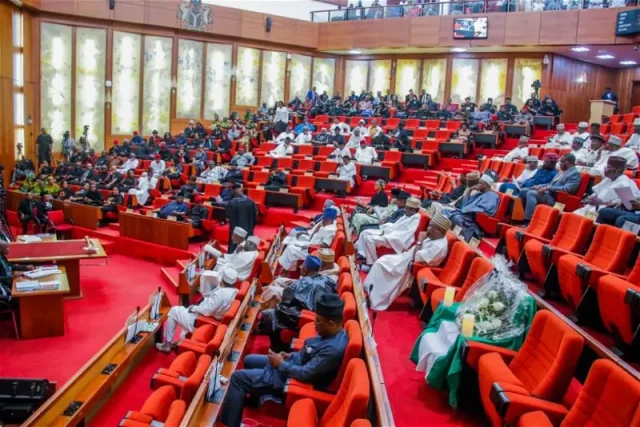
The Senate’s Decision on the National Anthem Debate
A debate that has sparked both nostalgia and controversy is the National Assembly’s decision on whether to revert to Nigeria’s old national anthem or stick with the present one. The current anthem, “Arise, O Compatriots,” has been in use since 1978, replacing the original “Nigeria, We Hail Thee.”
Proponents of reverting to the old anthem argue that it carries a sense of historical pride and continuity. They believe it resonates more with the foundational values and struggles of the nation. On the other hand, supporters of the current anthem argue that it represents the modern spirit of Nigeria and its aspirations for the future.
The debate is expected to be intense, reflecting broader conversations about national identity, heritage, and progress. Senators will need to weigh the cultural significance of both anthems and their impact on national unity and pride. Regardless of the outcome, this debate highlights the deep connection Nigerians feel towards their national symbols and the values they represent.
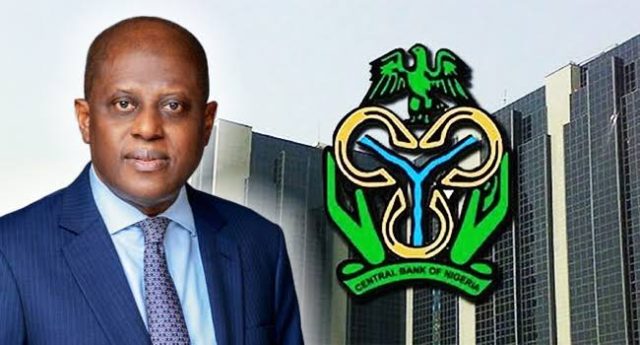
The CBN Layoffs: Economic and Social Implications
The recent news of a decision by the Central Bank of Nigeria (CBN) to lay off over 200 workers has stirred significant concern and debate. This move, reportedly part of a restructuring effort to streamline operations and cut costs, has far-reaching implications for the affected workers and the broader economy.
Lawmakers are expected to scrutinize the rationale behind the layoffs and their execution. Key issues include the criteria used for selecting workers for dismissal, the severance packages provided, and the overall impact on the CBN’s functionality and employee morale. Additionally, there will likely be discussions on the broader economic implications, particularly in terms of unemployment and social stability.
The National Assembly may call for measures to support the laid-off workers, such as job placement assistance, retraining programs, and financial aid. This situation also presents an opportunity for legislators to evaluate the effectiveness of current labour laws and employment protections, ensuring that such significant workforce changes are conducted fairly and transparently.
This week at the National Assembly promises to be eventful, with discussions spanning a wide range of issues that are pivotal to Nigeria’s development and unity that reflect the complex and dynamic nature of Nigerian society. The outcomes of these deliberations will undoubtedly have far-reaching implications for the nation’s future, highlighting the pivotal role of the National Assembly in shaping Nigeria’s socio-political and economic landscape.


